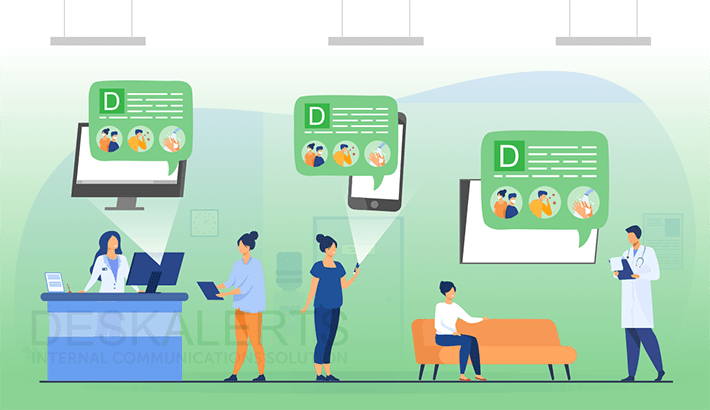Hospitals and healthcare facilities have an important role to play in emergency and disaster situations. They’re integral to managing casualties: treating the sick and injured and, sadly, can be the place where people die in such an event.
The World Health Organization defines a disaster as “any occurrence that causes damage, economic disruption, loss of human life and deterioration I health and health services on a scale sufficient to warrant an extraordinary response from outside the affected area or community.”
[Effective Response to Disaster Threats in Hospitals]
Disasters often happen with little to no warning. From natural disasters like hurricanes, forest fires and earthquakes to man-made disasters such as office fires, mass shootings, air crashes and terrorism. The common theme these have is that they can place an enormous strain on already stretched health facilities and, if not handled properly, can have disastrous consequences for those health facilities.
Hospitals and healthcare facilities themselves might even be at the center of a disaster situation, with patients and staff needing to be safely evacuated.
[Using DeskAlerts Color Code Alerts in the Healthcare Sector]
Healthcare facilities can reduce a potential hazard’s severity and impact before it takes place – or may be able to prevent it from happening entirely – when they carry out mitigation activities.
The most effective mitigation strategies will vary from organization to organization – every facility has its own needs informed by geographic need, population, the hazards in the area and the expected involvement in any community response.
[Hospital Preparedness Tools]
However plans should be put in place to mitigate risk in the event of a crisis that include:
- Structural, physical issues with healthcare facilities. Can any improvements be made that will help in a crisis?
- Back up for power, electrical, computer, data management and communication systems
- Compliance with any relevant local, state or federal laws or standards
Mitigation can also be a cost-effective way to improve an organization’s readiness for an emergency or crisis situation. Again, what needs to be mitigated will vary depending on the organization, but the rule of thumb is that organizations should also take into account what factors should be mitigated as best practice, regardless of cost or compliance with regulations.
[6 Tips for Emergency Preparedness Planning]
Many hospital and healthcare organizations around the world are incorporating DeskAlerts into their mitigation strategies.
DeskAlerts is a powerful internal communications tool with a myriad of uses that can quickly communicate with all employees in the event of an emergency situation. It can also be integrated with a range of other systems hospitals have in place, such as color coded warnings.
[The Benefits of DeskAlerts for Hospitals and Healthcare Organizations]
One DeskAlerts client, CHU Caint-Pierre, a university hospital in Brussels, Belgium provided feedback that DeskAlerts was deployed during a terror attack in March 2016 when the hospital had to operate in a state of emergency.
Phone communications were down, and the secondary messaging channel provided a way for management and employees to communicate to handle the situation.
According to the hospital’s Geoffrey Collet: “Shortly after the explosion, the hospital was in an alert state and the internal phone network became overloaded. We used DeskAlerts to lower the number of internal calls.
When the external phone network went down, we used DeskAlerts to notify the employees about switching to SMS messaging.
After the bomb alerts occurred again, we used DeskAlerts to notify employees about police with sniffer dogs operating in our units.
Without DeskAlerts, this day would have been much harder to manage.”
 Caroline Duncan
Caroline Duncan







